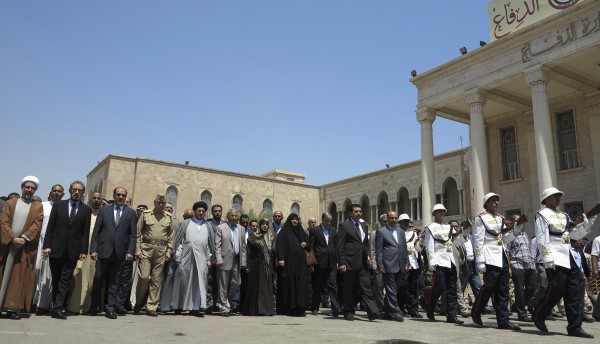Iraqi leaders attempt reconciliation as violence spikes
With the country's monthly death toll reaching a five-year high, politicians scrambled to re-start a functioning dialogue and restore public confidence in the political system.
Iraq's Prime Minister Nuri al-Maliki (3rd L) and acting Defence Minister Saadoun al-Dulaimi (2nd L) attend a funeral ceremony for soldiers killed by militants in Baghdad, April 28, 2013. (Reuters)
BAGHDAD - Iraq's leaders are trying to pull back from the edge of a political abyss, as sectarian violence escalated in April and May to levels the country has not seen in five years.
Almost every major political figure in the country gathered in Baghdad on Saturday for a conference organized by Ammar al-Hakim, the leader of the Islamic Supreme Council of Iraq (ISCI), a Shiite political party that has maintained an often tense alliance with Prime Minister Nouri al-Maliki. The prime minister himself traveled outside of the Green Zone to ISCI's headquarters to attend the event – a significant gesture of humility from a man accused by many Iraqis of authoritarian excesses.
This content is for registered users. Please login to continue.
If you are not a registered user, you may purchase a subscription.
If you are not a registered user, you may purchase a subscription.





